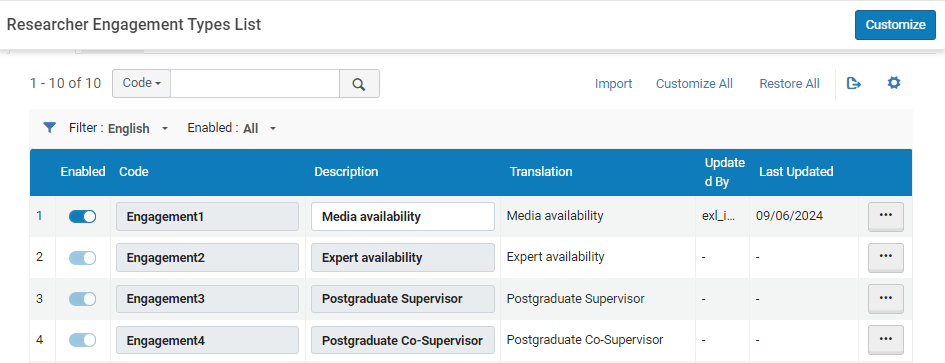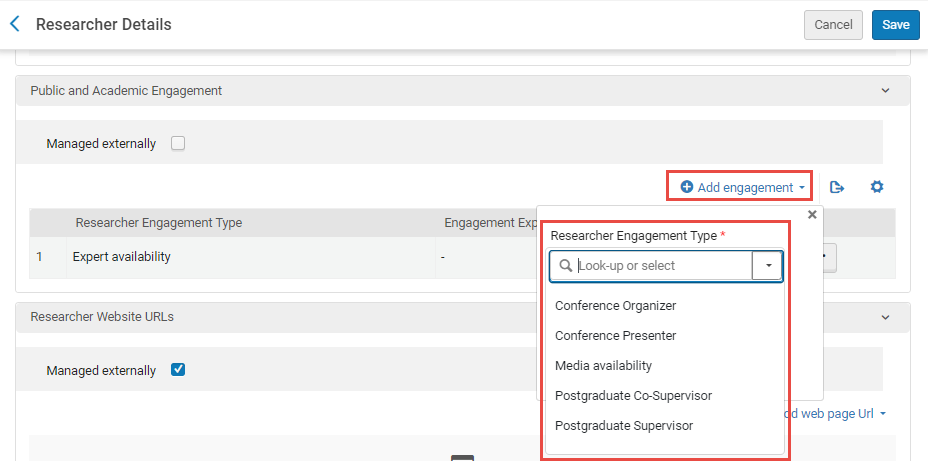Configuring Researcher Details
This page describes how to configure researcher details in Esploro. For working with researchers in Esploro see here. For information on configuring the various parts of the research information hub see here.
Configuring Researcher Engagement Types
Configuration managers can configure the types of researcher engagements that can be associated with individual researchers in the research repository. These are used to indicate various types of engagements in which a researcher is available to take part, such as whether the researcher is designated as an expert in a particular field, or is available to give media interviews. The engagement types are configured in the Researcher Engagement Types List table (Configuration Menu > Researchers > Researchers > Researcher Engagement Types).


Configuring Display of Researcher Engagement Types in the Portal
Configuration managers can configure the types of researcher engagements that can be displayed in researchers' profiles in the portal in the Researcher Engagement Types Display in Profile table (Configuration Menu > Researchers > Researchers > Researcher Engagement Types Display in Profile), under Display.

- Configuring the names of these engagement types is done in the Researcher Engagement Types List table; see Configuring Researcher Engagement Types, above.
- Researchers can choose to hide some or all of the engagement types that are set to display in their profile; see Managing Researcher Profiles.
Configuring Researcher Titles
To configure the titles, you must have one of the following roles:
- Administrator
- User Administrator
You can configure researcher titles (honorifics), such as Mr., Prof., and so forth. The titles are available when adding or editing researchers (see here). Titles are also available for Esploro letters (see here).
You configure the titles on the User Titles code table (Configuration > Researchers > Researcher Titles). For more information about code tables, see Code Tables.

You can add, edit, and delete titles. You can select the order they appear in the drop-down list and the default selected title.
Configuring Opt-In Defaults for Researcher Letters
- Configuration Manager
.png?revision=1)
- Mediated Deposit Approved - Assets created by administrator that were approved (where the researcher is defined as creator/contributor - part of the Research Deposit Action Letter)
- Researcher Approval Notification Letter - Lists all the assets that were found by Smart Harvesting, for the researcher to approve or reject.
- Researcher Deposit Approved - Assets created by researcher that were approved (part of the Research Deposit Action Letter)
- Researcher Deposit Returned - Researcher deposits that were returned by the administrator (part of the Research Deposit Action Letter)
- Researcher Usage Statistics - Statistics for asset usage from the previous month
- Researcher ETD Usage Statistics - Statistics for ETD asset usage from the previous month
- Researcher New Assets Added To Profile - Notify researchers of new assets that have been added to their profile.
- Researcher New Url identifier - Notify on generating new URL Identifier
- Send Assets to ORCID - Notify regarding assets pushed to ORCID

